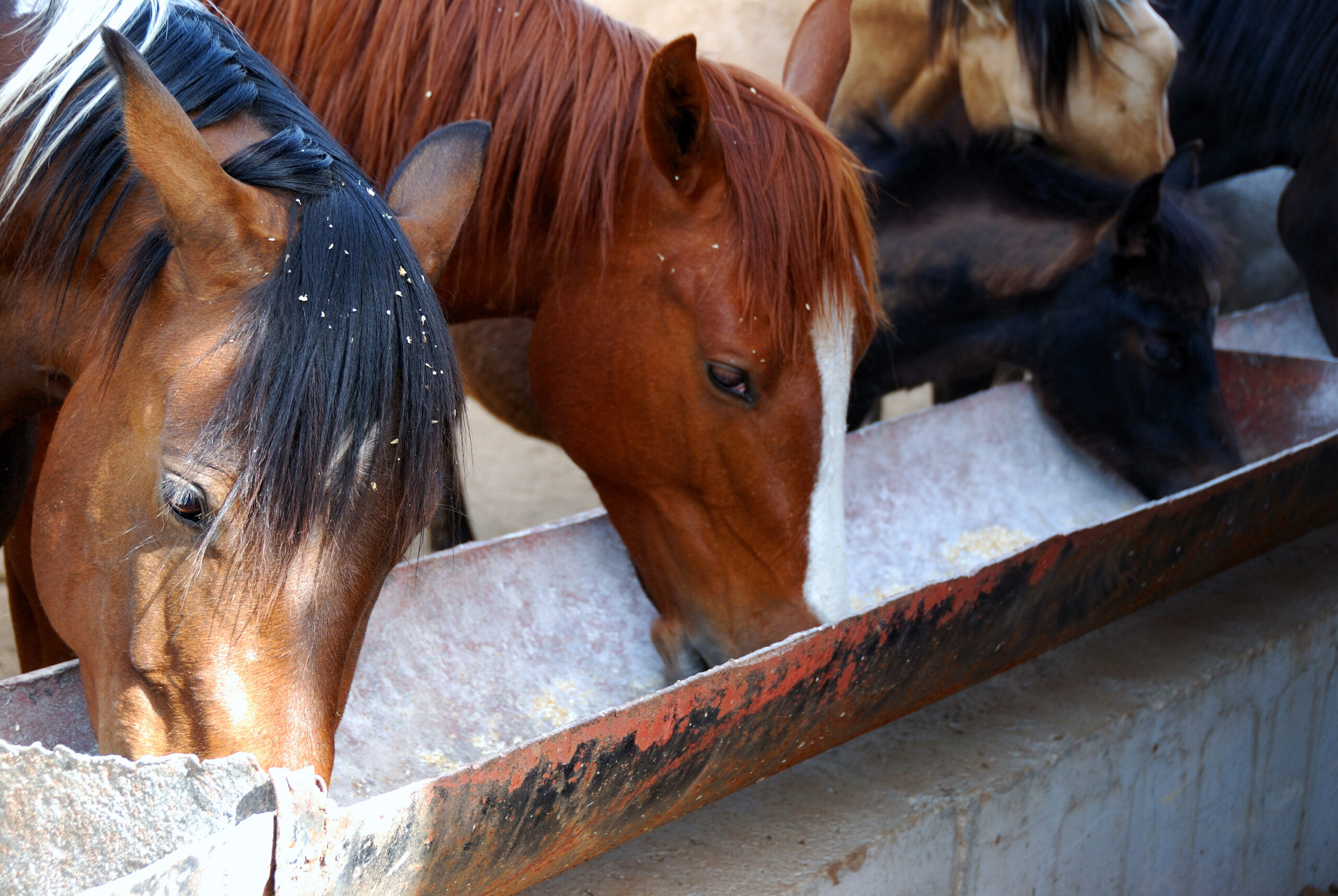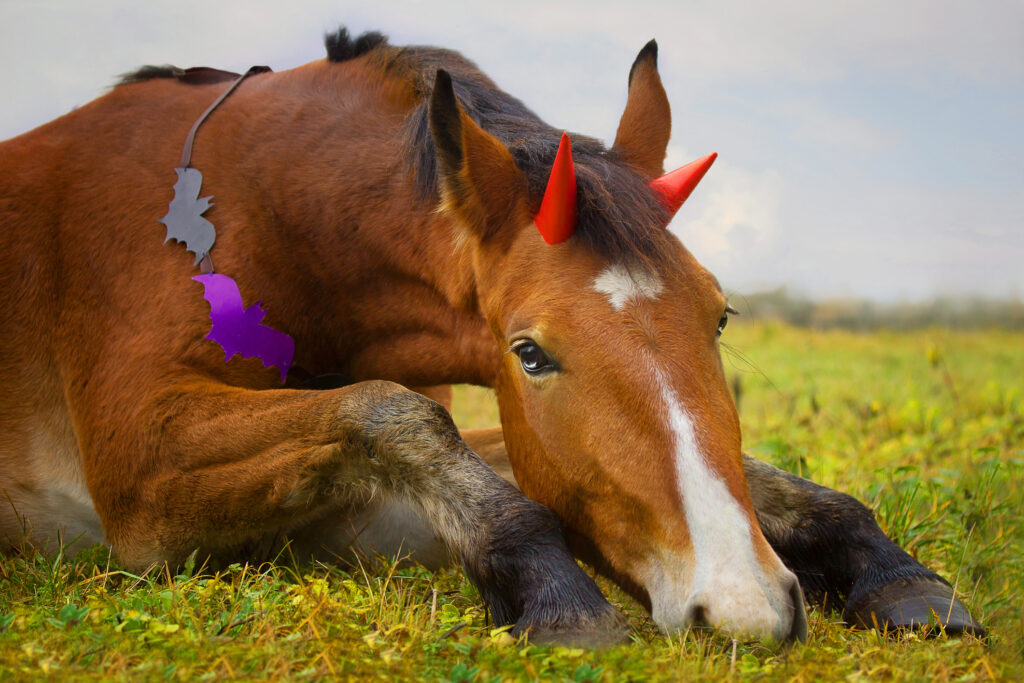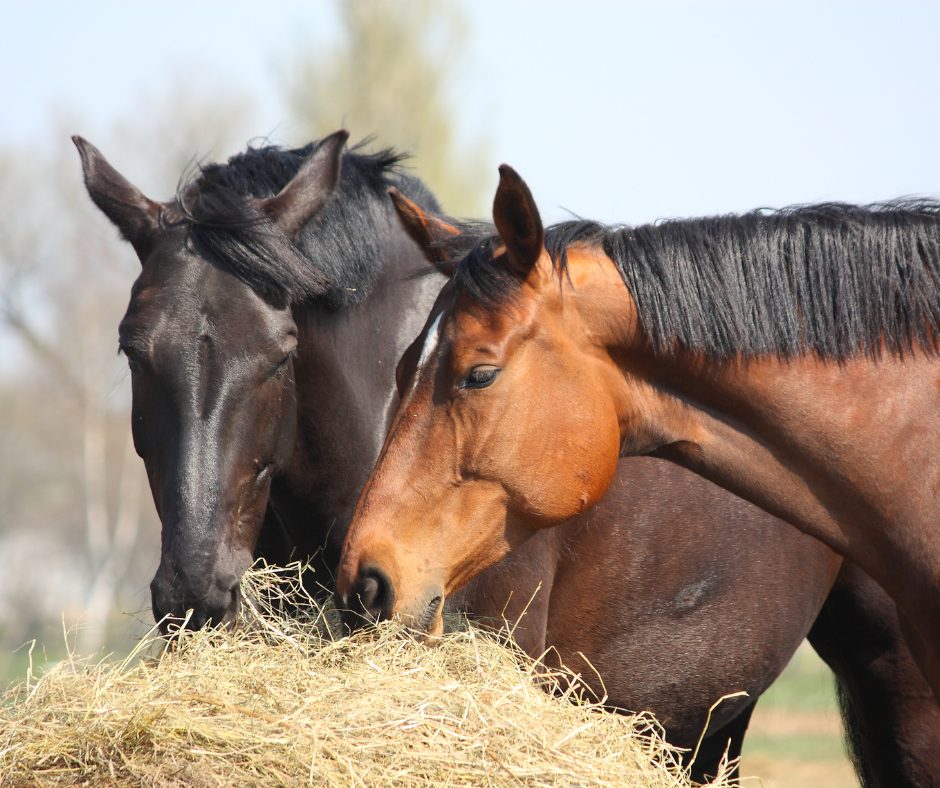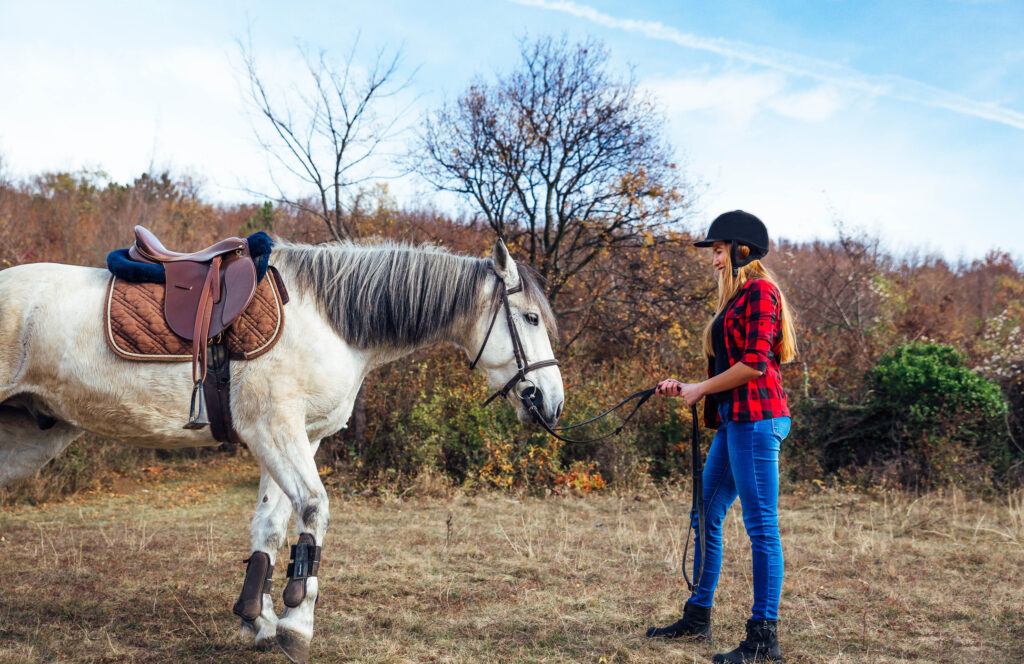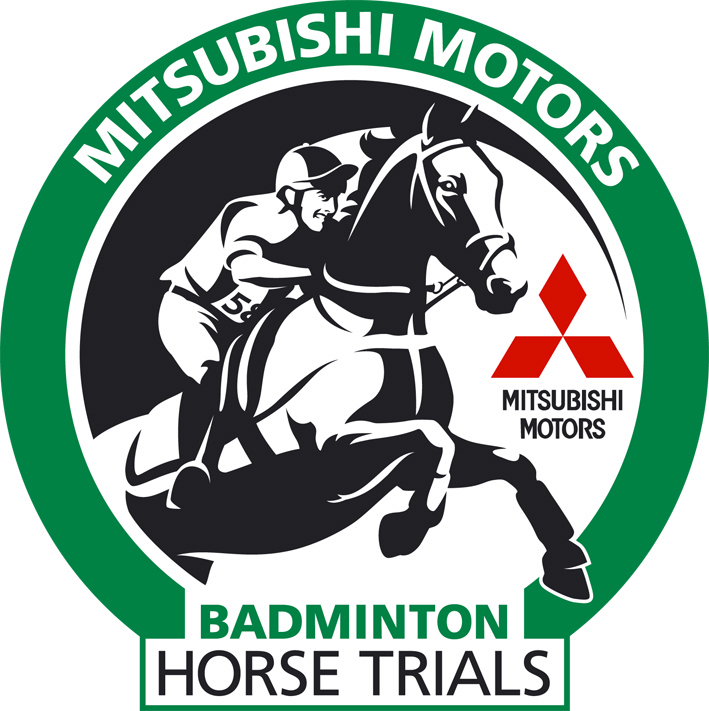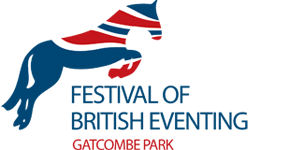As horse owners, it is indeed a pleasure to be looking after our horses. Ensuring that they are being fed good quality food is a big part of horse care. Feeding horses sounds very straightforward; however, there are few common mistakes that all horse owners should be aware of and look to avoid.
Below, we have outlined the eight most common horse-feeding mistakes and tips on how to avoid them. Before we get started, it is crucial to highlight that if you recognise some of these mistakes as something you have been doing, please ensure that they are addressed immediately. We always recommend consulting with your veterinarian or equine nutritionists for professional advice
1. Overfeeding
A part of taking care of our horses is to make sure they are provided with the best, and enough feeds daily; however, if the feed quantity is not controlled, horses can eat more than they need, resulting in being overfed.
Overfeeding can lead to your horses gaining excess weight, which can put a strain on their health. They may come across health problems such as obesity, increased stress on the heart and lungs, increased risk of laminitis, the strain on their feet, joints, limbs, and more.
2. Underfeeding
Underfeeding and excessive weight loss is a common problem amongst the senior horses or horses that work hard. If regular feed such as hay and pasture are not enough to keep your horses looking and feeling healthy, look to use concentrates and supplements for extra nutrition, and use specially developed feeds for senior horses.
However, keep in mind that underfeeding hay or pasture, but overfeeding grains and concentrates can lead to colic.
#Tip– Most horses will require a simple diet with good pasture and quality hay with some supplements for nutrition. To encourage feeding, you can always mix in some slices of carrots, brans mash, and other fruits and vegetables. Keep it all balanced and make sure everything is weighed and controlled.
3. Not providing fresh water
Having clean water available is crucial to your horse’s health. For horses fed only hay, having less or lack of water can result in impaction colic. During the winter months, make sure that the water is not too cold, as most horses avoid drinking cold water. Mixing some hot water with the cold can help encourage drinking.
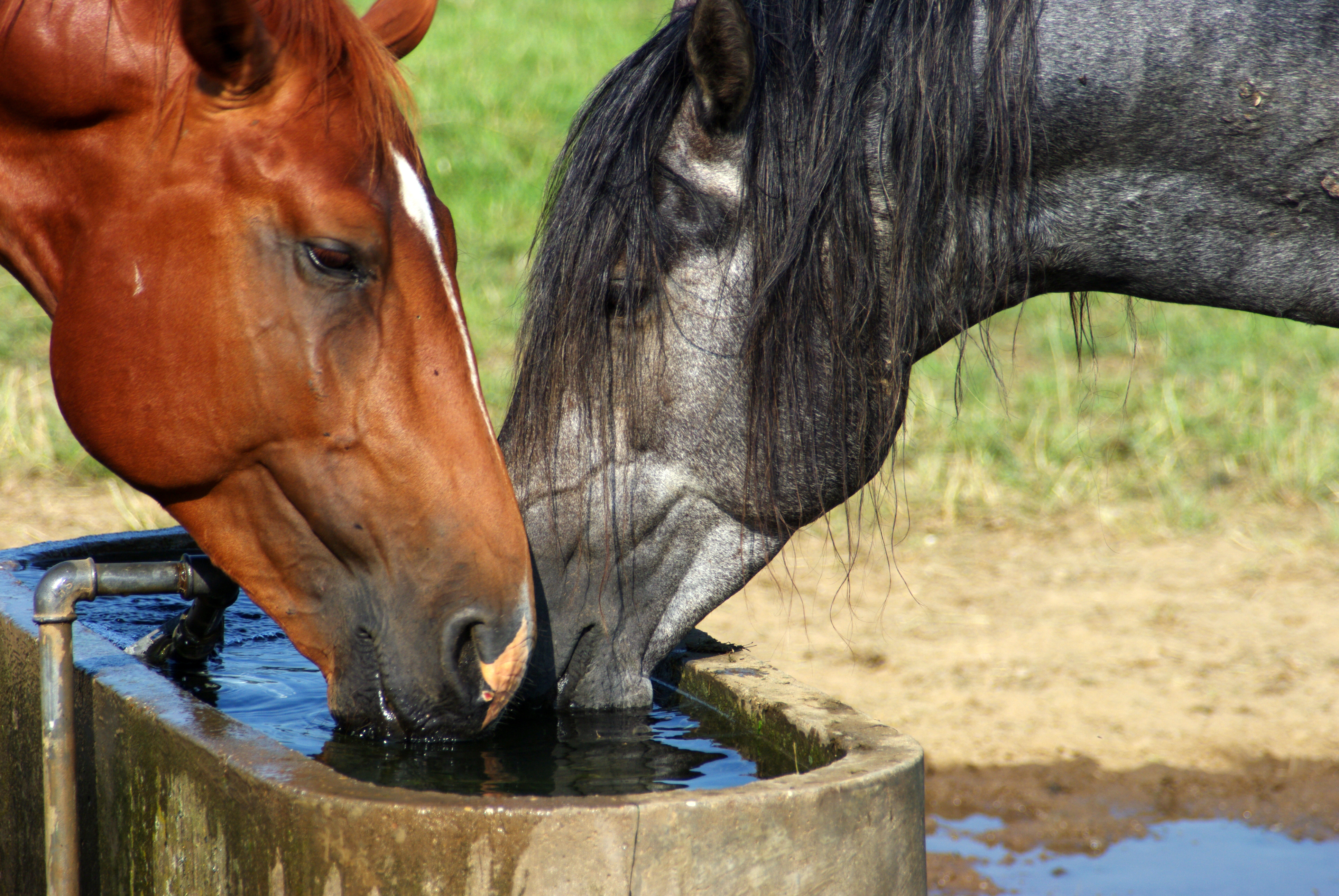
4. Poor quality hay
Poor quality hay can cause different kinds of problems, including nutritional deficiency and lung illness if the hay is dusty and mouldy. Good quality hay should be bright green with slight fading. It’s best to avoid hays with yellow, bleached, brown, or back appearance as it may indicate aged or poorly stored hays with less or no nutrition.
5. Calculating feed by volume and not weight
Hay, concentrates, and any other kinds of feed must be fed by weight and not volume. Weighing out their food will ensure that your horses get the right amount of balanced nutrients to go about their daily activity.
Horses should consume around 1-3% of their body weight per day, depending on their workload and conditions. It is equally important to check and follow the feeding direction for the feed you are using. Buy a trustworthy scale, and make sure that you calculate the feed based on your horse’s body weight.
6. Ignoring Parasites
Your horses should be de-wormed correctly; if ignored, harmful parasites can steal all the necessary nutrients to keep them healthy from the inside and out. As a result, your horse may look skinny but bloated, dull, and drained.
It is recommended to complete a faecal worm egg counts four times per year and de-worm horses that show a high worm burden. This helps slow resistance to the wormers while keeping horses healthy. Please consult your vet immediately if your horse is showing the following signs of being infected by worms or parasites:
- Weight loss
- Colic (abdominal pain)
- Poor growth in young foals
- Respiratory problems
- Diarrhoea or constipation
- Not eating well and lack of energy
- Loss of energy and unhealthy looking coat
- Sores on their skin
8. Ignoring Dental Health
A regular dental check-up is essential when it comes to ensuring that your horses are feeding well. If dental problems are ignored, your horse may lose the ability to chew well and may even be in pain, preventing them from eating and drinking well.
Senior and mature horses are also more likely to lose teeth and develop hooks and sharp edges, making things very uncomfortable and even developing other dental problems such as mouth ulcers, infected gums, and poor misalignments.
8. Overlooking Pasture grass quality
A well looked after pasture will not only provide your horses with good nutrition but also natural grazing time, exercises, and a space to interact with other horses. However, it is vital to inspect your pastures for harmful weeds and over-grazing.
An average horse is known to graze continuously for a few, rest, and continue grazing again. This rotational grazing method can be used to ensure the quality of the pasture. By dividing a large field into smaller areas so that your horses can rotate from one place to another, you allow grasses to grow in one area while your horses are grazing in another.
Horse feed is significant to keep horses healthy and happy. Some of the key points to remember are keeping a record of your horses’ weight, ensuring they are fed accordingly, checking up on the feed quality, and having regular check-ups with the veterinarian, whether that be for de-worming or dental check-ups.
Lastly, if you are looking for a field shelter for your horses to rest mid-grazing or a brand new stable for your horses, why not get in touch with our team here at Jon William Stables? Simply call us on 01380 850 965 or fill out the enquiry form here.
